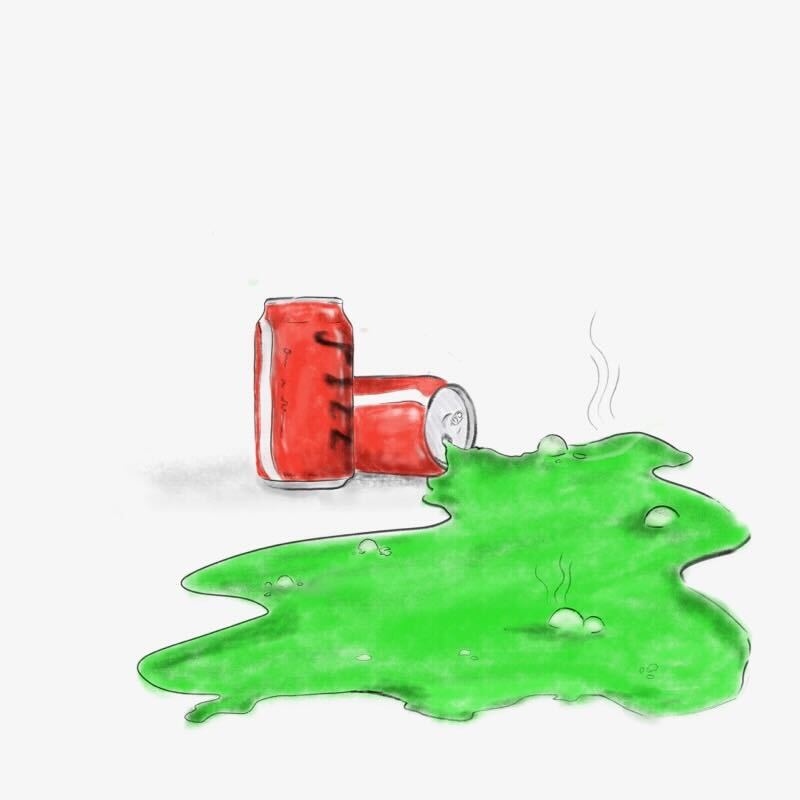Environmental Responsibility
We have to act fast to try and save our environment… before it’s too late.
Photo: Kate Winstead
It feels like every day the world is nearing an all-consuming apocalypse. Nuclear warheads, outbreaks of disease and war and the rapidly changing climate threaten human life everywhere.
This dour and gloomy prospect is not something many want to dwell on, myself included. But it also bears important questions: what do we plan to do about it? How can we as individuals even hope to change anything by just our own actions?
This is in no way me dismissing the efforts of those who are environmentally conscious or engage in recycling, but rather posing a question. Why are individuals responsible for fixing a problem they are not wholly at fault for?
It is not the public who should be held accountable but rather the real villains in this situation — non eco-friendly companies. These billion dollar companies refuse to dispose of their waste in an ethical manner simply to save a buck.
There are hundreds of companies who are releasing toxic waste into the ocean or hazardous chemicals into the air. Recent reports from the 2021 Political Economy Research Institute list company Northrop Grumman as the number one water polluter company in the world.
Northrop Grumman’s company statement is: “At Northrop Grumman, we pioneer technologies and break new boundaries to protect and advance humanity as we know it. From deep sea to outer space to cyber space, we are defining possible at the edge of every frontier.”
However, Grumman has not been entirely forthright in their efforts to create new technology especially where pollution is concerned.
A news article from Newsday in 2020 reveals that Grumman has been releasing a toxic run off chemical that has spread into neighboring communities. This has caused a serious environmental consequence for the areas affected, especially Long Island, New York.
The nearby public wells have been determined undrinkable by the Environmental Protection Agency. Not to mention, this chemical sludge can continue to spread and infest new water wells in Bethpage, Long Island.
Despite this environmental nightmare, Grumman has been able to keep their actions relatively under wraps and respond to claims of heavy pollution by mentioning their ongoing environmental sustainability projects. Here’s a company statement from NG’s 2021 Sustainability Report:
“In 2021, the E&E (Environmental and Efficiency) allocation totaled $1 million and was distributed across six projects focused on driving water conservation in water-stressed regions, like California, reducing 12 million gallons of water withdrawals annually. We will continue to grow this investment in 2022 to incentivize and encourage innovations.”
Yet when looking at this year’s report on the top 100 water polluters from the Political Economy Research Center, Northrop Grumman remains number one in toxic water pollution, and has been for several years now. Why do we allow these companies to continue to contaminate our communities and create living conditions that negatively impact humanity?
Government officials are often sponsors of companies such as Northrop Grumman and will dismiss or belittle claims of pollution. Instead of regulating these companies harshly or preventing such environmental damage, they work with these companies for profit.
It isn’t just technological companies like Northrop Gruuman that are making jet fuel and building rockets who are polluting our environment. It is our everyday companies as well.
Coca Cola is probably the one of the most popular drinks in America, but it is also one of the world’s foremost producers in plastic waste. A 2019 USA Today article cites that the company was responsible for about three million tons of plastic from packaging alone.
It seems ironic that a polar bear is the mascot of a company who is responsible for mass pollution and climate change. In recent years, however, the company has made more of an effort to be environmentally conscious by trying to create recyclable packaging. But there is still more to be done.
These companies have the money and resources to further their efforts on environmental sustainability.
As individuals, we are often pressured to be totally environmentally responsible when the majority of waste doesn’t even come
from us. Along with our recycling programs and little self grown gardens, we also need to advocate for companies and the government to own up and fix their own colossal mistakes.







